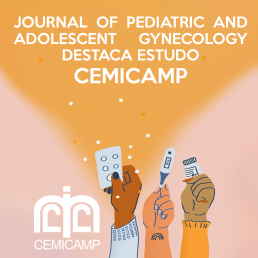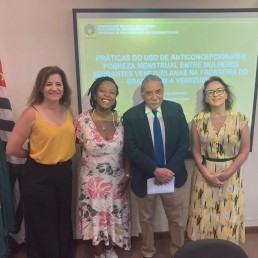"CEMICAMP Advances in Women's Health with the Implementation of Carevix in Brazil"
Last week, the Centro de Pesquisas em Saúde Reprodutiva de Campinas (CEMICAMP) had the honor of hosting Julien Finci, CTO of Aspivix, for a training session on the innovative Carevix device. This training marks an important advancement in our efforts to enhance women’s health by collecting real-world data on the use of Carevix in Latin America.Na semana passada, o Centro de Pesquisas em Saúde Reprodutiva de Campinas (CEMICAMP) teve a honra de receber Julien Finci, CTO da empresa Aspivix, para uma sessão de treinamento sobre o inovador dispositivo Carevix. Este treinamento marca um avanço importante em nossos esforços para aprimorar a saúde da mulher, coletando dados do mundo real sobre o uso do Carevix na América Latina.
We are excited to announce that Cemicamp has become an Ambassador site for Carevix, thanks to the support of Prof. Dr. Luis Bahamondes and Bayer Pharmaceuticals. This partnership will enable thousands of women in low- and middle-income countries to access safe and effective contraceptive methods.
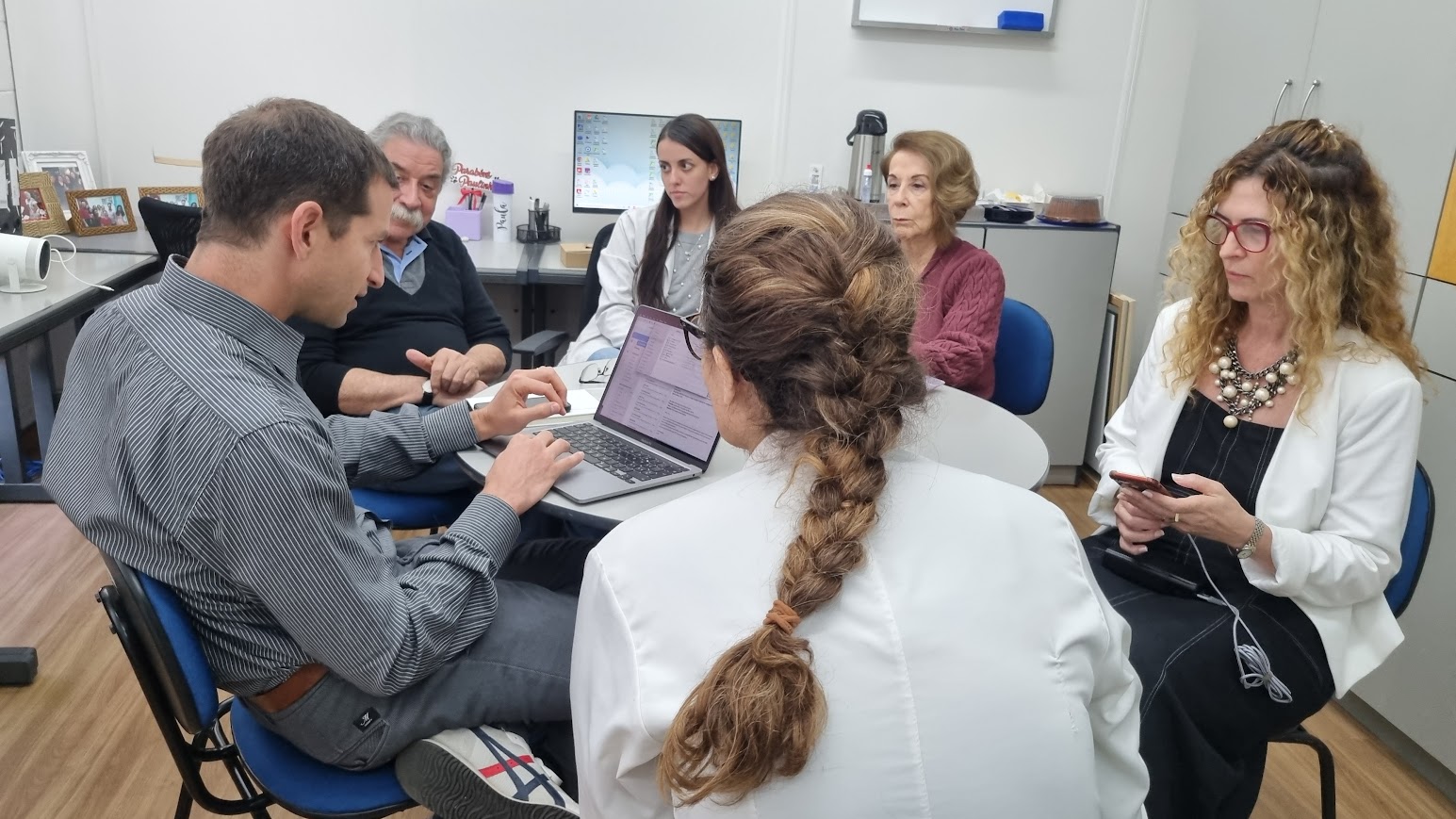 During the training session, we had the pleasure of working with:
During the training session, we had the pleasure of working with:
Prof. Dr. Luis Bahamondes, President of CEMICAMP and Principal Investigator
Dr. Ana Claudia Henrique Marcelino, Medical Researcher and Sub-Investigator
Ximena Espejo-Arce, Research Nurse
Paula da Cunha Pereira, Research Nurse and Clinical Research Coordinator
Vilma Zotarelli, Study Coordinator
The dedication and expertise of these professionals in the field of family planning and gynecology are truly inspiring. Together, we are paving the way for safer and more effective solutions in women’s health.
Our goal with this collaboration is to enhance data collection in real-world settings, ensuring that Carevix continues to meet the needs of both healthcare professionals and patients. The enthusiasm and commitment demonstrated by the Cemicamp team were remarkable, and we are confident that this partnership will provide invaluable insights.
We will continue to expand our network of Ambassador sites and drive innovation in gynecology, always with the focus on pushing the boundaries of women's health.
Let’s continue advancing and promoting women’s health!
FIGO Statement on the Recent Ban on Inducing Fetal Asystole for Legal Abortions in Brazil
In many countries around the world, women and girls who need to undergo abortions in advanced gestational stages face significant barriers to accessing safe services. These women and girls are among the most vulnerable, often subjected to increased stigmatization and persecution, and experience more severe complications and higher mortality rates when forced to resort to unsafe abortion practices.
Restrictive laws that deviate from the World Health Organization (WHO) recommendations against imposing deadlines, combined with a shortage of trained professionals, further exacerbate injustices against these individuals. In regions where legislation allows for the provision of safe abortion services in later stages of pregnancy, it is the ethical and professional duty of healthcare providers to advocate for access and quality, and to challenge any barriers that worsen existing structural factors.
In Brazil, induced abortion is legal under three circumstances: when the pregnancy results from rape, when there is a risk to the life of the pregnant person, and when there is a diagnosis of fetal anencephaly. In these three circumstances, there is no gestational age limit to access the right to a safe abortion according to Brazilian law. However, the Federal Council of Medicine of Brazil recently issued a resolution prohibiting the induction of fetal asystole for legally induced abortions, undermining these rights.
The Ban is Unethical and Contradicts Medical Evidence
FIGO expresses its deep concern over the recent resolution issued by the Federal Council of Medicine of Brazil that prohibits the induction of fetal asystole for legally induced abortions. This ban in Brazil is unethical and contradicts medical evidence.
For abortion procedures performed after 20 weeks of gestation, scientific evidence supports considering the induction of fetal asystole to prevent signs of life during a medical (induced) abortion or fetal expulsion after cervical preparation but before a planned dilation and evacuation (DE) procedure. The likelihood of transient neonatal survival after expulsion increases with gestational age and the interval between cervical preparation and the abortion. For medical abortion beyond the limit of viability, the induction of fetal asystole should always be an option.
The ban prevents access to quality abortion services for women with advanced (beyond viability) pregnancies who otherwise have the right to legal abortion in Brazil. The induction of fetal asystole in advanced induced abortions is an essential component of standard quality care and aligns with the intended outcome of the abortion, which is never a live birth.
The ban prevents obstetricians and gynecologists from adhering to the ethical principle of beneficence. It is well-established that safe induced abortion is safer than childbirth, even at advanced gestational ages. Terminating a pregnancy without inducing fetal asystole constitutes the induction of a premature live birth (which by definition is not an abortion). Without the induction of fetal asystole, abortions beyond the limit of viability become impossible to perform, forcing women to either continue the pregnancy and face the risks of full-term delivery and forced motherhood, or resort to very unsafe abortions. Thus, the ban violates women’s right to access and benefit from modern scientific technologies for a safe abortion.
The Ban Violates Ethical Principles
The ban contravenes the ethical principle of non-maleficence by potentially exposing the woman and the newborn to the harms of prematurity if advanced pregnancies are terminated without inducing fetal asystole. Terminating an advanced pregnancy without inducing fetal asystole could result in transient signs of life or even survival, with all the complications associated with prematurity (including respiratory distress, patent ductus arteriosus, severe intraventricular hemorrhage, necrotizing enterocolitis, late-onset sepsis, bronchopulmonary dysplasia requiring supplemental oxygen, and retinopathy). The induction of fetal asystole is therefore necessary to prevent avoidable risks to newborns and ensure non-maleficence, as well as to avoid legal implications for doctors who face caregiving obligations with neonates showing signs of life.
The ban indeed violates the prohibition of torture or other cruel, inhuman, or degrading treatment as established by the United Nations Human Rights Council. Banning the induction of fetal asystole could compel obstetricians and gynecologists to refuse to provide legally requested abortions due to their commitment to avoid causing harm to the newborn. Such refusal would constitute a violation of the pregnant person’s right to be free from torture or other cruel, inhuman, or degrading treatment or punishment.
The ban promotes the false assumption that studies on premature infants are applicable to aborted fetuses, using the rhetoric of viability. Viability is a medical concept relevant only to neonatal care and intensive care in the context of spontaneous or medically indicated preterm birth. It is not relevant to induced abortions. Even in applicable contexts, preterm birth is a last-resort measure in obstetrics, as any harm to the newborn, no matter how minimal, should be avoided. The studies on premature children cited in the resolution of the Federal Council of Medicine of Brazil pertain to inevitable preterm births and should not be generalized to aborted fetuses. This intentional misinterpretation also trivializes the risks associated with prematurity.
Impact on Public Health
The ban will negatively impact public health indicators by potentially falsely increasing neonatal and infant mortality and morbidity rates.
Ensuring Safe and Respectful Care
FIGO reiterates that the induction of fetal asystole should be considered and legally permitted as a therapeutic intervention to ensure a safe, medically induced abortion at advanced gestational stages when extrauterine viability is possible. This practice allows for care that respects the autonomy of the pregnant person and protects them from any harm. Banning fetal asystole—resulting in the risk of live births from legal abortion requests—undermines access to safe abortion care. In Brazil, it deprives healthcare professionals of the ability to advocate for the rights of women and girls as recognized by Brazilian legislation. This ban exacerbates social disparities and injustices: it sets a dangerous precedent for the entire region, threatening the significant advances made in this area in recent years.
References:
- World Health Organization (WHO). Clinical practice handbook for quality abortion care. Geneva: WHO, 2023. Available at: www.who.int/publications/i/item/9789240075207nbsp;
- World Health Organization (WHO), International Classification of Diseases 11th Revision (2022). The global standard for diagnostic health information. Available at: https://icd.who.int/browse11/lm/en#/http://id.who.int/icd/entity/151711…;
- Bartlett LA, et al. Risk factors for legal induced abortion-related mortality in the United States. Obstet Gynecol. 2004 Apr;103(4):729-37.
- CESCR. General Comment Nº 25: Science and economic, social and cultural rights. Article 15(1)(b), (2), (3) and (4) of the International Covenant on Economic, Social and Cultural Rights. United Nations, 2020 (UN Doc. E/C.12/GC/25).
- Stoll BJ, et al; Neonatal outcomes of extremely preterm infants from the NICHD Neonatal Research Network. Pediatrics. 2010 Sep;126(3):443-56.
- United Nations. General Council. Human Rights Council. A/HRC/22/53. Report of the Special Rapporteur on torture and other cruel, inhuman, or degrading treatment or punishment, Juan E. Méndez. Paragraphs 49 and 50.
- Nuffield Council of Bioethics. Critical care decisions in fetal and neonatal medicine: ethical issues. London: Nuffield Council of Bioethics, 2006.
- Romanis EC. Is 'viability' viable? Abortion, conceptual confusion and the law in England and Wales and the United States. J Law Biosci. 2020 Oct 9;7(1): lsaa059.
- Brumbaugh JE,et al. Outcomes of Extremely Preterm Infants With Birth Weight Less Than 400 g. JAMA Pediatr. 2019 May 1;173(5):434-445.
- Tyson JE, et al.; National Institute of Child Health and Human Development Neonatal Research Network. Intensive care for extreme prematurity--moving beyond gestational age. N Engl J Med. 2008 Apr 17;358(16):1672-81.
† Although the ban on the induction of fetal asystole by the Federal Council of Medicine is not a law in Brazil, it is valid nationwide for all Brazilian doctors. Since in Brazil legally induced abortions must only be performed by doctors according to the text of the law, the resolution published by the Federal Council of Medicine ultimately restricts medical practice concerning induced abortions.
‡ The concept of viability is variable and depends on the context and available technology.
Check the original article here.
Complete Series of the International Group on Access to Hormonal IUDs
For decades, the hormonal IUD has been an available option in high-income countries, providing an effective and convenient solution for family planning. However, there is still a horizon of possibilities to be explored for this contraceptive method. A recent video, available for viewing, features experts discussing the future of the hormonal IUD, addressing its potential and the challenges in making this option equitably accessible worldwide.
In the latest edition of the Hormonal IUD Access Group video series, which reflects on the long journey toward the global introduction of the hormonal IUD, renowned experts including Gathari Ndirangu Gichuhi, Tabitha Sripipatana, Laneta Dorflinger, Jim Sailer, and Dr. Luis Bahamondes discuss the next steps for expanding access to this technology. Dr. Luis Bahamondes, who is the president of CEMICAMP, has been a central figure in the discussions covered in the three videos of the series, contributing his extensive experience and knowledge in the field.
The videos highlight the importance of achieving equitable access to the hormonal IUD, a product that not only expands contraceptive options but also addresses heavy menstrual bleeding, combats iron deficiency, and improves the quality of life for millions of people around the world. With experts like Dr. Luis Bahamondes involved in these discussions, there is a clear focus on finding solutions that can be implemented across various socioeconomic realities, promoting a positive impact on global public health.
Dr. Luis Bahamondes's active participation in the discussions underscores the importance of continuous and informed dialogue on how to improve the distribution and acceptance of the hormonal IUD. His involvement in the three videos of the series reinforces the commitment of experts to finding ways for this technology to benefit as many people as possible, regardless of their location or economic condition.
Check a snippet of the discussion posted on our Instagram:
For those interested in closely following these discussions and staying informed about advancements in the field, it is possible to subscribe to the HIUD Access Group newsletter through the website. Through this channel, subscribers can receive updates and information on new developments, initiatives, and events related to the hormonal IUD and its global impact.
In summary, the hormonal IUD represents a key piece in the puzzle of modern family planning, with the potential to transform lives. With dedicated experts like Dr. Luis Bahamondes leading the way, there is hope that broader and more equitable access will be achieved, allowing millions of people to benefit from this innovation in reproductive health.
Check out the complete series below:
Recrutamento para avaliação de novo tratamento para incontinência urinária no CAISM - UNICAMP
1 de July de 2024Recrutamentos
A incontinência urinária (vazamento acidental do xixi) é um problema de saúde bastante comum, principalmente entre mulheres.
Um dos tipos de perda urinária é aquele que acontece quando você sente uma urgência para fazer xixi, vai muitas vezes ao banheiro durante o dia, acorda muitas vezes à noite para urinar ou não consegue segurar a urina a tempo de chegar ao banheiro. Há diferentes tipos de tratamento para esse problema, como o uso de remédios e a realização de terapias com fisioterapeutas. Todos eles têm vantagens e desvantagens.
 Agora, médicas do Hospital da Mulher da Unicamp vão avaliar se o uso de um pequeno aparelho gerador de ondas (parecido com um ultrassom) pode ser um tratamento opcional adequado para o problema. Para responder a essa pergunta, será realizada uma pesquisa com 140 mulheres que sofram de incontinência urinária. As participantes têm que ter idade entre 45 e 65 anos. Além disso, não podem ter feito nenhum tratamento anterior para esse problema.
Agora, médicas do Hospital da Mulher da Unicamp vão avaliar se o uso de um pequeno aparelho gerador de ondas (parecido com um ultrassom) pode ser um tratamento opcional adequado para o problema. Para responder a essa pergunta, será realizada uma pesquisa com 140 mulheres que sofram de incontinência urinária. As participantes têm que ter idade entre 45 e 65 anos. Além disso, não podem ter feito nenhum tratamento anterior para esse problema.
Se ficou interessada e quer saber mais sobre essa pesquisa, entre em contato com a Dra. Juliana Fazzolari, do Hospital da Mulher da unicamp. Você pode falar com ela através do WhatsApp: (19) 99901-0108 e 97823-1272.
Presidente do CEMICAMP é destaque no Livro "Diálogos do Futuro"
É com grande satisfação que comunicamos a presença do presidente do CEMICAMP no recém-lançado e inspirador livro "Diálogos do Futuro". Esta obra não é apenas um compêndio literário, mas um verdadeiro convite para imergir em histórias de vidas extraordinárias e descobrir os superpoderes latentes em cada um de nós.
"Diálogos do Futuro" reúne narrativas que enfatizam a persistência, a superação e a coragem. Cada página oferece uma visão profunda e inspiradora de como esses elementos moldam nossas vidas e nos impulsionam a alcançar o extraordinário. As histórias são envolventes, repletas de emoções e ensinamentos que cativam o leitor do início ao fim.
Editorial da revista Ginecologia Pediátrica e Adolescente (Journal of Pediatric and Adolescent Gynecology) destaca estudo realizado no Centro de Pesquisas em Saúde Reprodutiva de Campinas
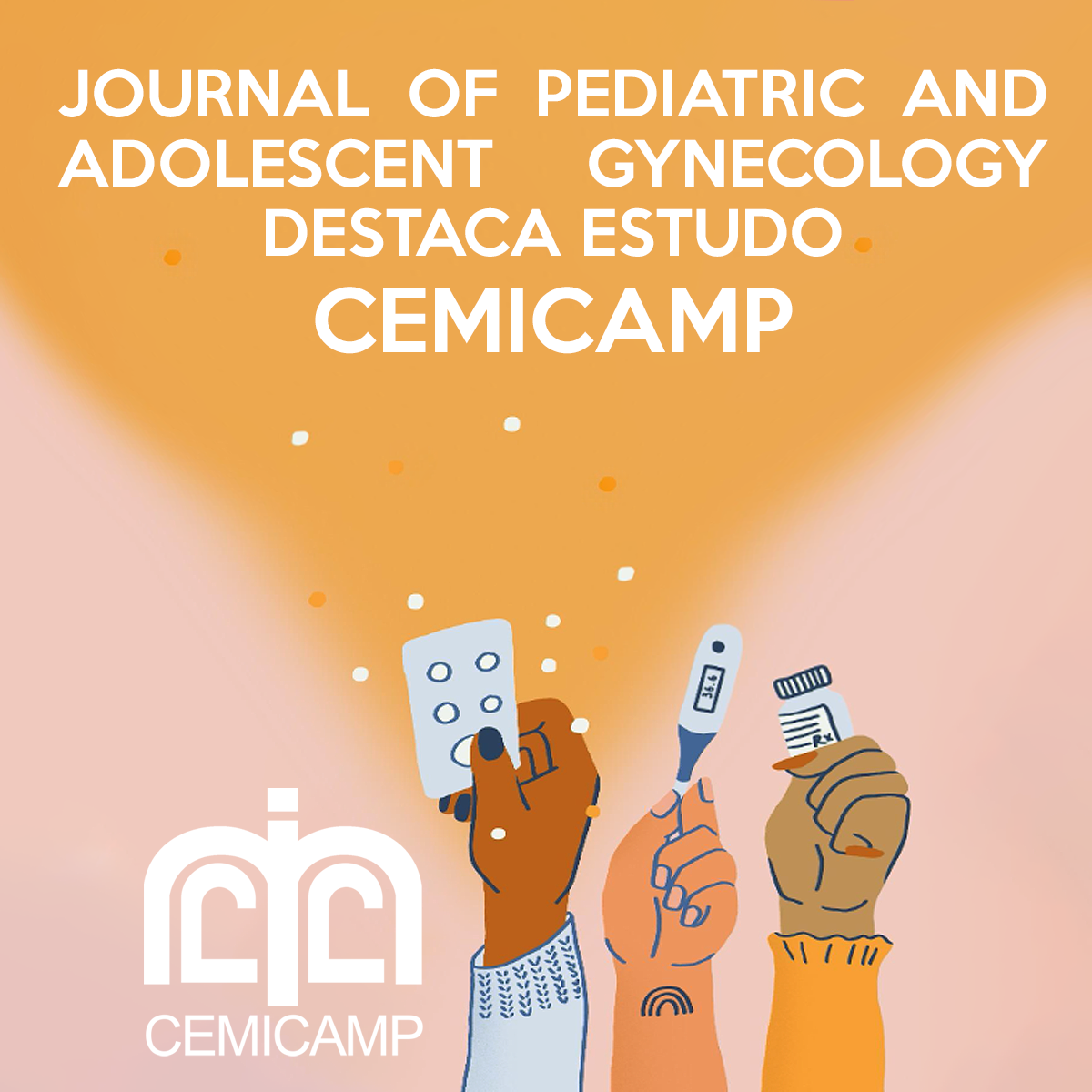 O editorial "Saúde Sexual e Reprodutiva nos Estados Unidos, 2024: Como você votará?" (em tradução livre), da Paula J Adams Hillard MD (JPAG, Editor-in-Chief), destaca a importância crucial das questões relacionadas à saúde sexual e reprodutiva nas eleições de novembro de 2024. Escrito após as eleições primárias no estado da Califórnia, a autora enfatiza que embora algumas corridas políticas ainda estejam indefinidas, a escolha para a corrida presidencial não é tão acirrada em grande parte do país, tanto para os candidatos democratas quanto para os republicanos.
O editorial "Saúde Sexual e Reprodutiva nos Estados Unidos, 2024: Como você votará?" (em tradução livre), da Paula J Adams Hillard MD (JPAG, Editor-in-Chief), destaca a importância crucial das questões relacionadas à saúde sexual e reprodutiva nas eleições de novembro de 2024. Escrito após as eleições primárias no estado da Califórnia, a autora enfatiza que embora algumas corridas políticas ainda estejam indefinidas, a escolha para a corrida presidencial não é tão acirrada em grande parte do país, tanto para os candidatos democratas quanto para os republicanos.
A autora reconhece que a política pode ser um tema controverso, até mesmo entre membros da mesma família, e que nem todos atribuem o mesmo peso a todas as posições políticas de um candidato. No entanto, ressalta que, no contexto das eleições de 2024, a escolha entre os candidatos é clara para aquelas que apoiam a saúde sexual e reprodutiva, a justiça reprodutiva, assim como o acesso à contracepção e ao aborto.
Um ponto-chave abordado no editorial é um estudo realizado no Centro de Pesquisas em Saúde Reprodutiva de Campinas:
Um estudo recente conduzido por Bahamondes e colegas no Brasil está lançando luz sobre a eficácia e a aceitação dos dispositivos intrauterinos (DIUs) em adolescentes. Publicado recentemente, o estudo é notável não apenas por seus resultados, mas também por sua abordagem inovadora em uma área da medicina que carece de ensaios clínicos randomizados: a Ginecologia Pediátrica e Adolescente (PAG).
O estudo avaliou o desempenho clínico, padrões de sangramento, dismenorreia e satisfação do paciente com três tipos de DIUs: o DIU de cobre, o DIU de levonorgestrel de 52 mg e o DIU de 19,5 mg em adolescentes, com uma média de idade de 17,9 anos, sendo 80,8% nulíparas. Os resultados, embora em certa medida esperados, fornecem insights valiosos devido ao desenho randomizado do estudo.
Um dos principais achados foi a alta taxa de continuação de todos os DIUs, que foi de 83%. No entanto, a continuação foi ligeiramente menor com o DIU de cobre em comparação com os DIUs hormonais. Além disso, a taxa de expulsão foi mais alta nos DIUs de cobre, com 14,9 expulsões por 100 mulher-ano. Os DIUs hormonais também apresentaram vantagens em relação ao sangramento menstrual e à dismenorreia, com uma proporção significativamente menor de adolescentes relatando esses sintomas em comparação com o DIU de cobre.
Um ponto notável foi a alta taxa de satisfação do paciente, com uma taxa impressionante de 97,8% no grupo que recebeu a dose mais alta de levonorgestrel. Isso sugere que, apesar das preocupações ou dúvidas que alguns possam ter sobre o uso de DIUs em adolescentes, a grande maioria está satisfeita com sua escolha contraceptiva.
Para os profissionais de saúde e os defensores da saúde reprodutiva, este estudo fornece um apoio robusto ao uso de DIUs em adolescentes, incluindo aquelas que nunca engravidaram. A sua importância não se limita apenas ao contexto brasileiro, mas tem repercussões globais, especialmente em um momento em que o acesso à contracepção segura e eficaz é fundamental para a saúde das adolescentes.
Embora ainda haja desafios a serem enfrentados, como a educação sobre contracepção e o acesso aos serviços de saúde, os resultados deste estudo são um passo significativo na direção certa. Eles destacam a importância de abordagens baseadas em evidências na promoção da saúde sexual e reprodutiva das adolescentes em todo o mundo. Com mais pesquisas e uma maior conscientização, podemos continuar avançando na proteção dos direitos reprodutivos das jovens mulheres.
Presidente do CEMICAMP, Luis Guillermo Bahamondes, cede entrevista à Pesquisa FAPESP
O Presidente do CEMICAMP, Luis Guillermo Bahamondes, cedeu uma entrevista à Pesquisa FAPESP. 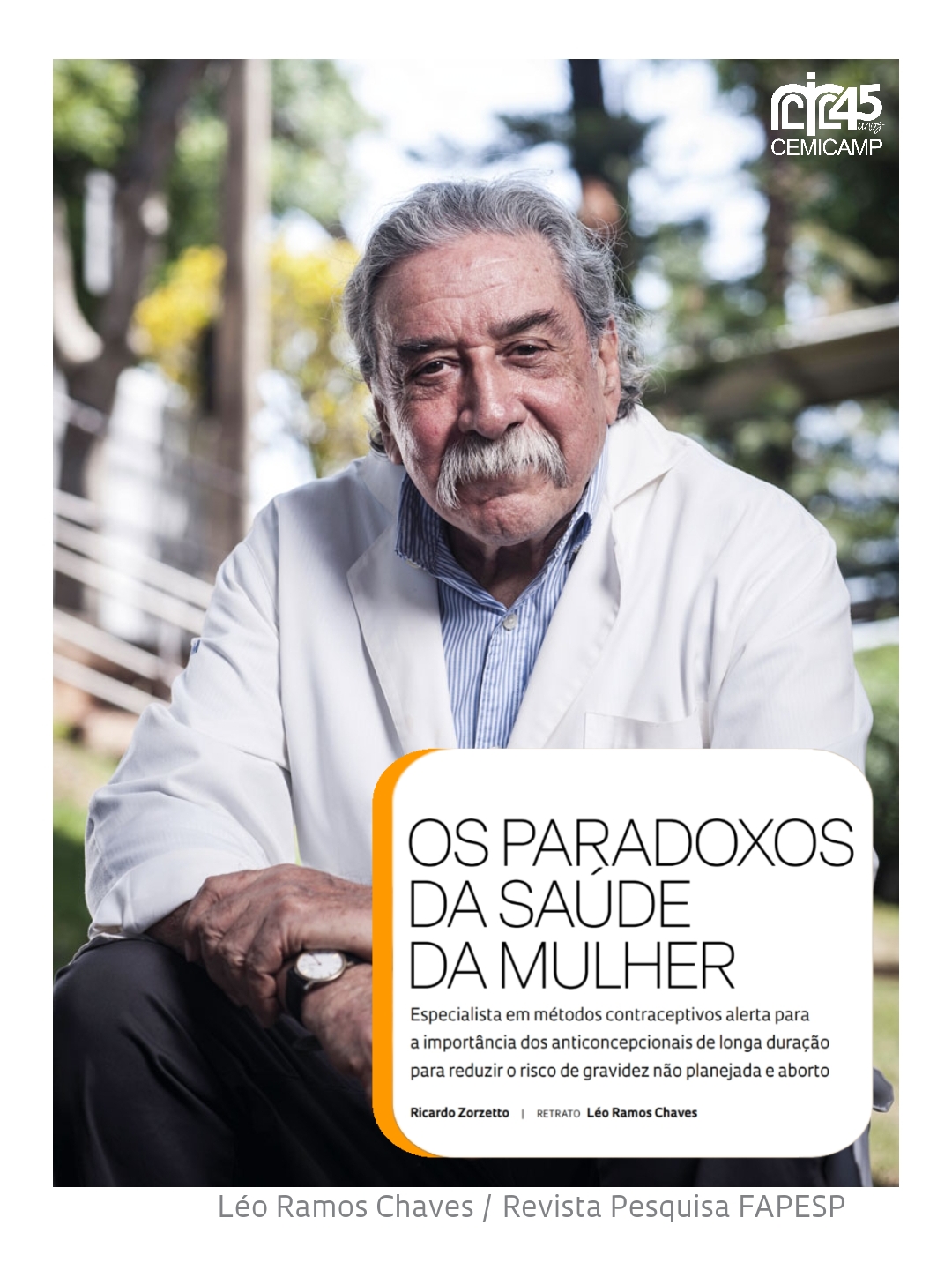 Confira um trecho abaixo, e o texto na íntegra no link:
Confira um trecho abaixo, e o texto na íntegra no link:
"A mulher, no Brasil e no mundo, enfrenta quatro grandes problemas: falta de acesso a métodos anticoncepcionais e de atenção na gravidez, no parto e no puerpério, além de carência de atendimento após a menopausa e para cuidar do sangramento uterino anormal. Muito precisa ser feito para atender a essas necessidades, e muito poderia ser economizado com ajustes nas políticas públicas de atendimento à saúde da mulher. Publicamos em 2014 um artigo mostrando quanto custava para o setor público brasileiro cada gravidez, incluindo os exames e as consultas do pré-natal, o parto e o acompanhamento no puerpério [os 40 dias após o parto].
Tudo saía por US$1 mil, cerca de R$5 mil. É muito caro. Se as mulheres que não desejam engravidar colocassem DIU [dispositivo intrauterino] ou implante hormonal, métodos anticoncepcionais de longa duração, o custo para o Estado seria de menos de R$ 1 mil. Tentamos há anos influenciar os formuladores de políticas públicas. Enviávamos cada publicação de nosso grupo com importância para o setor público para os secretários da Saúde de Campinas e do estado de São Paulo e para o ministro da Saúde, com um recado: “Olhe isto”. Sabe quantas vezes nos responderam? Nenhuma, nem sequer acusavam o recebimento."
Texto na íntegra: https://revistapesquisa.fapesp.br/luis-bahamondes-os-paradoxos-da-saude-da-mulher/
Dr. Montas Laporte é contemplado com bolsa do Programa de Pesquisador de Pós-Doutorado da UNICAMP
 O Dr. Montas Laporte foi contemplado com uma bolsa do Programa de Pesquisador de Pós - Doutorado da UNICAMP - Deliberação da Congregação nº471/2023 da Faculdade de Ciências Médicas da Universidade Estadual de Campinas (UNICAMP). Parabéns Montas pela conquista!
O Dr. Montas Laporte foi contemplado com uma bolsa do Programa de Pesquisador de Pós - Doutorado da UNICAMP - Deliberação da Congregação nº471/2023 da Faculdade de Ciências Médicas da Universidade Estadual de Campinas (UNICAMP). Parabéns Montas pela conquista!A aluna Leila Rodrigues Rocha Defende sua tese sobre Pobreza Menstrual
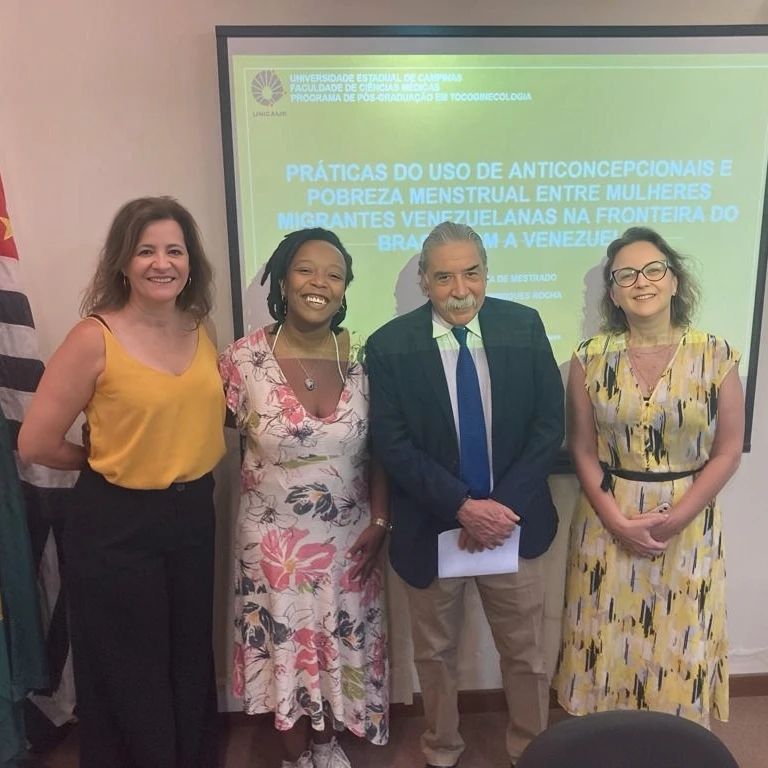 Hoje, 07/12/2023, a aluna de mestrado Leila Rodrigues Rocha, defendeu sua tese intitulada "PRÁTICAS DO USO DE ANTICONCEPCIONAIS E POBREZA MENSTRUAL ENTRE MULHERES MIGRANTES VENEZUELANAS NA FRONTEIRA DO BRASIL COM A VENEZUELA", sob a coordenação do Prof. Dr. Luis Guillermo Bahamondes.
Hoje, 07/12/2023, a aluna de mestrado Leila Rodrigues Rocha, defendeu sua tese intitulada "PRÁTICAS DO USO DE ANTICONCEPCIONAIS E POBREZA MENSTRUAL ENTRE MULHERES MIGRANTES VENEZUELANAS NA FRONTEIRA DO BRASIL COM A VENEZUELA", sob a coordenação do Prof. Dr. Luis Guillermo Bahamondes.A pobreza menstrual entre imigrantes é um desafio muitas vezes silencioso e subestimado, mas que impacta de maneira significativa a vida e dignidade de mulheres em situação de vulnerabilidade. Esse fenômeno descreve a dificuldade enfrentada por mulheres de baixa renda ou em situação de imigração, que não têm acesso adequado a produtos menstruais, informações sobre higiene menstrual e, em alguns casos, até mesmo a saneamento básico.
Para muitas imigrantes, a pobreza menstrual se torna uma barreira adicional em um contexto já complexo de adaptação a uma nova cultura, língua e sistema social. A falta de acesso a produtos de higiene menstrual não só afeta a saúde física, aumentando o risco de infecções e complicações ginecológicas, como também impacta a saúde mental, autoestima e integração social.
A importância de abordar e resolver essa questão é crucial. É fundamental fornecer acesso gratuito e digno a absorventes, copos menstruais ou outras opções, além de educar sobre saúde menstrual e garantir locais adequados para a troca e descarte desses produtos. Além disso, é necessário promover políticas inclusivas que reconheçam as necessidades específicas das mulheres imigrantes em situação de pobreza menstrual.
Atuar para combater a pobreza menstrual entre imigrantes não é apenas uma questão de saúde ou acesso a produtos básicos; é um passo essencial para promover a igualdade de gênero, a inclusão social e o respeito à dignidade humana. Garantir que todas as mulheres, independentemente de sua situação socioeconômica ou status migratório, tenham acesso digno a cuidados menstruais é crucial para construir uma sociedade mais justa e equitativa.
Presidente CEMICAMP recebe homenagem por destaque em ranking de pesquisadores
A Faculdade de Medicina prestou uma emocionante homenagem aos docentes que se destacaram no mais recente ranking de pesquisa, recebendo reconhecimento institucional por sua exímia capacidade técnica na geração de conhecimento em níveis excepcionais. A renomada editora Elsevier revelou um ranking que ressalta a qualidade e o impacto da produção acadêmica dos docentes, resultando na merecida homenagem por parte da instituição. Dentre os pesquisadores homenageados estava o presidente do CEMICAMP, Dr. Luis Bahamondes.
Nesse evento marcante, os professores foram celebrados por sua incansável dedicação à pesquisa, demonstrando excelência na produção de conhecimento que impacta positivamente a comunidade acadêmica e a sociedade em geral. A homenagem reflete não apenas a importância do reconhecimento institucional, mas também o orgulho da Faculdade de Medicina em ter em seu corpo docente profissionais tão notáveis e comprometidos com a inovação e a excelência científica.
Confira o vídeo clicando aqui.









